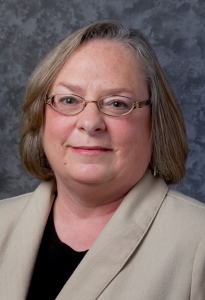
Legislative update from Rep. Pam Curtis, D-32nd Dist.
Feb. 12, 2015
It has been a very eventful week at the State Capitol. Committee work continues to be very robust, as well as action on bills on the House Floor. In the House, Judiciary Committee hearings were held regarding a constitutional amendment for judicial selection. In Vision 2020, the KanCare II expansion bill that would provide medical coverage for more Kansans was introduced.
On Thursday, students from Kansas City Kansas Community College, Joseph Lutz and Wendy Monarres, were recognized on the House Floor as a part of the Kansas All-State Phi Theta Kappa Academic Team for 2015. I enjoyed the opportunity to visit with KCKCC President Doris Givens and others from KCKCC who accompanied the students to Topeka.
Representatives from the Kansas tourism Industry from across the state were in Topeka on Wednesday to promote the unique attractions in their areas. It was great to see Bridgette Jobe, Kurt Mayo, Tim Ryan, Kerry Green and Celeste Mikijanis representing KCK.
It remains an incredible honor to represent our community in the Kansas House of Representatives. While the Legislature is in Session, I do my best to stay in touch and keep you informed by email, and I spend countless hours every week helping my constituents solve problems. If I can be of service to you or anyone you know, call my office at 785-296-7371, or email me at pam.curtis@house.ks.gov.
Kansans First
This week I was proud to join fellow Democrats by signing onto the Kansans First initiative, a series of policies to help Kansas families. Kansans First is aimed at giving working Kansans the opportunity to succeed and prosper, and includes the: Hire Kansans First Act, a living wage bill, and reinstituting prevailing wages.
Hire Kansans First Act
The Hire Kansans First Act requires contractors receiving taxpayer dollars or tax incentives to hire a workforce composed of at least 70 percent Kansas residents. The bill will prevent the out of state exportation of labor and will keep jobs in Kansas.
Kansas Living Wage
Unfortunately, too many Kansans are trying to make ends meet with far too little. The livable wage bill will increase the Kansas minimum wage by 56-percent over five years, to $11.32. The bill then ties the livable wage to the federal poverty line so it will continue to increase with inflation. A livable wage is critical to combating poverty and working towards a more prosperous Kansas.
Annual Minimum Wage (per year)
2015 $7.25
2016 $8.06
2017 $8.87
2018 $9.68
2019 $10.50
2020 $11.32
2021 and on Annually amended to 200% of Federal Poverty Line
Prevailing wage
Two years ago the Kansas Legislature prohibited municipalities from requiring contractors to pay prevailing wages, or a set market value hourly wage. This bill will reverse that action and will return local control to municipal governments, because Kansas workers deserve adequate compensation.
Maintaining local spring elections
There is a proposal that calls for the partisan election of school board and municipal officials to take place in November rather than the spring, when they currently occur. Local elections transcend partisan politics, and focus on the issues facing communities rather than party agendas.
The continued assault on Kansas education
During the campaign the governor promised to protect education funding, but since beginning his second term, The governor and his legislative allies have continued the assault on public education by:
• Issuing an allotment that would rescind 1.5 percent of each school districts budget for this year, and 2 percent from state universities, totally more than $44.5 million,
• Postponing the transfer of $20.8 million in Capital Outlay funds to June, and
• Proposing a bill which would change the way the state computes local option budgets equalization funds, immediately cutting more $39 million from local districts.
The individual cuts to education add up. As school districts begin to feel the pressure, so do students. As class sizes begin to rise, teachers are laid off, and programs are cut. We need to continue to invest in our most valuable asset, our children, doing otherwise is irresponsible.
Governor’s executive order
Earlier this week the governor issued an executive order removing sexual orientation from the list of protected classes for state employees. The regressive and discriminatory action from the governor is merely another attempt to play party politics in order to distract from the serious budget crisis facing our state.
